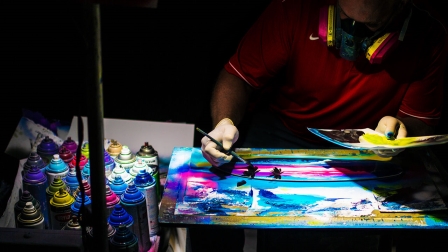How To Channel Your Weekend Hobbies Into Weekday Productivity
If you find Mondays particularly difficult, it may be due in part to how you spent your weekend. Lingering hangovers and lack of sleep aside, new research suggests that the hobbies we engage in over the weekend can impact our productivity during the workweek.
“Our main motive was to find out if people would find more benefit in certain activities based on their career,” says the study’s lead author, Kevin Eschleman, an assistant psychology professor at San Francisco State University. The study, which surveyed 350 U.S. workers in different locations and industries who work Monday to Friday, was presented at the 2015 Academy of Management Annual Meeting.
Eschleman adds that he was also attempting to “better understand how people can use their free time to allow them to come back and feel energized and hopefully get more out of their work.”
Previous studies conducted by Eschleman already suggest a link between workplace productivity and hobbies outside of work. This particular study, however, sought to understand how people could better use their weekends in order to improve their workplace performance.
“Our most interesting finding is that these creative activities that seem to be somewhat important become very important for people who are doing a job currently that doesn’t provide a creative outlet,” says Eschleman.
He explains that those who work in fields that demand a significant degree of structure and regulation should seek a creative outlet during their spare time, while those who work in industries that promote creativity should seek a more regimented weekend hobby.
“Whatever activity you’re doing in your free time should not be taxing you or demanding you in the same way as your job,” says Eschleman. “If you’ve been working on a creative project all week, it’s probably not in your benefit to do another creative project in your free time.”
Creative hobbies, Eschleman explains, can include artistic pursuits such as arts and crafts, music, creative writing, and even playing video games, while non-creative hobbies might include volunteering, playing team and individual sports, or simply completing chores and housework.
Furthermore, Eschleman observes that not every workweek provides the same level of creativity, no matter the industry. Eschleman, for one, considers his research position to be a creative outlet, but the weeks he spends grading papers are the ones he seeks out more creative hobbies on the weekends.
“A lot of people don’t realize how much variability there really is in their job,” he says. As a result, he suggests having variability in the types of ways you recover and the types of hobbies you have. “If you’re having an experience where you haven’t been as creative in your job, you should seek those out in your free time,” he says. “That’s likely to improve how you feel about your job, and how you feel in your job,” Eschelman explains.”Our past research shows it might even improve your performance.”
The recharging effect that hobbies can have, however, is only temporary, notes Eschleman, who suggests that weekend activities will only really impact the early portion of the workweek.
“It’s usually about two to three days later that these effects fade out, which is why people need to engage in some kind of activity in the middle of the week,” he says. “It’s very similar to physical exercise: You need to continuously work at these things in order to experience the mental health benefits. It’s short-lived.”
Fast Company , Read Full Story
(32)


